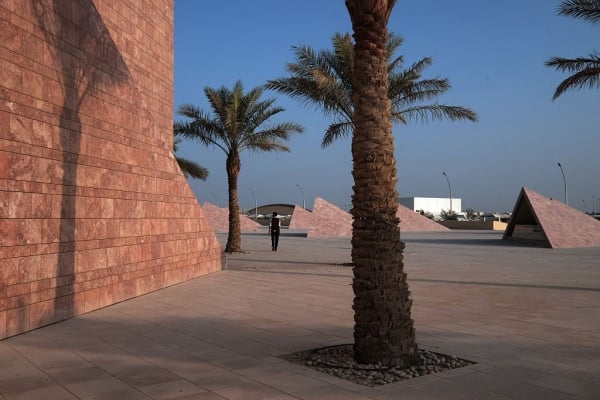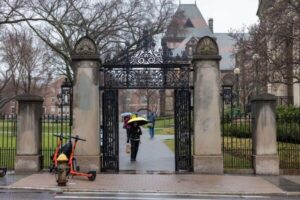
Former Education Secretary Defends Qatar to McMahon
Qatar’s Education City is a hub for several branch campuses of U.S. universities.
Bonnie Jo Mount/The Washington Post/Getty Images
Qatar has tapped former secretary of education William Bennett, who served in the Reagan administration, as a consultant amid mounting scrutiny over universities’ ties to the country.
Bennett, in a letter to Education Secretary Linda McMahon, wrote that recent criticism of Qatar appears “to be driven more by politics and international rivalries than by genuine concern for educational integrity.” He argued that “claims that Qatar exerts malign influence or promotes antisemitism through its educational engagements are not supported” by evidence he has seen.
In recent months Qatar has been under fire from Republicans, who have accused the nation of trying to buy influence and of harboring terrorists, among other criticisms. Conservative activist groups have also accused the country of spreading antisemitism and anti-American ideologies.
But Bennett sought to blunt those criticisms in his letter, writing that during his research, he “encountered a coordinated campaign of distortion led primarily by third-party advocacy groups whose motivations and funding sources deserve far more scrutiny than they have received.” Bennett also flipped the critique, arguing that some groups, specifically naming the Institute for the Study of Global Antisemitism and Policy, “appear to be acting in coordination with, or in support of, the interests of other foreign governments.” ISGAP, Bennett noted, receives funding from Israel.
He also disputed the notion that Qatar had fueled campus antisemitism in the U.S. as claimed.
Republican lawmakers have also heavily criticized the existence of branch campuses in Qatar, which include outposts of Georgetown University, Northwestern University and other institutions. (Texas A&M announced last year that it plans to close its Qatari campus by 2028.)
Bennett pointed to such branch campuses as an “effort to import American academic institutions and standards to its own country.” He argued that rather than attempting to buy influence, as claimed, Qatar is investing in educational infrastructure and promoting rigorous scholarship.

Source link



